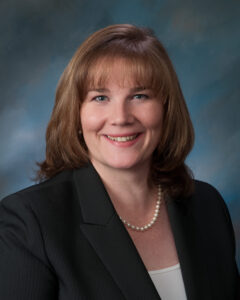March 31, 2025
A Pediatrician’s Guide to Concussion Recovery in Children & Teens
A concussion is a type of brain injury that can happen after a bump, blow, or jolt to the head. It is common in young athletes, but it can also occur from falls or accidents. While many children recover fully, concussions can temporarily affect how they think, feel, and function.
How a concussion affects the brain
A concussion can disrupt normal brain function in several ways:
- Cognitive function: Your child may have trouble focusing, remembering things, or processing information quickly.
- Emotional health: Mood swings, anxiety, irritability, and sadness are common after a concussion.
- Long-term health: While most children recover in a few weeks, repeated concussions can lead to lasting problems, including memory issues and headaches.
Helping your child heal 
The brain needs time to recover after a concussion. Here are some key steps to aid healing:
- Encourage rest: Sleep is one of the most important factors in recovery. Ensure your child gets plenty of sleep at night and takes short naps if needed.
- Limit screen time: Bright screens and fast-moving images can strain the brain and make symptoms worse. Encourage quiet activities like reading or drawing instead.
- Follow return-to-play guidelines: If your child plays sports, they must follow specific steps before returning. This includes a gradual increase in activity guided by a healthcare provider.
How specialized treatment can help concussion recovery
As a doctor of osteopathic medicine (DO), I use a hands-on approach called osteopathic manipulative treatment (OMT). This gentle technique helps restore normal movement in the body, reducing headaches, dizziness, and muscle tension. OMT can also improve blood flow, which supports brain healing.
By promoting proper alignment, reducing strain, and fixing the muscle strain memory from the concussion, OMT can speed up recovery and lower the risk of future concussions. It is a safe, gentle, and effective way to help children heal while complementing other treatments. If you are currently experiencing new concussion symptoms or have had symptoms and been diagnosed with post-concussion syndrome, I might be able to help your recovery with OMT.
When to see a doctor
If your child has a head injury, always consult a healthcare provider. Seek medical care immediately if they experience worsening headaches, vomiting, confusion, or trouble walking.
At Merrimack Pediatrics, we are here to support your child’s health and recovery. If you have concerns about concussions or need guidance on safe return-to-play practices, we are accepting new patients and are ready to help.
 Before earning her doctor of osteopathic medicine degree from the University of New England, Dr. Karen Morgan received a bachelor’s degree in biochemistry from Merrimack College and a master’s degree in medical sciences from Boston University. She completed her postdoctoral training at the University of Connecticut School of Medicine and has worked in pediatrics ever since. Dr. Morgan is in practice at Merrimack Pediatrics and is accepting new patients.
Before earning her doctor of osteopathic medicine degree from the University of New England, Dr. Karen Morgan received a bachelor’s degree in biochemistry from Merrimack College and a master’s degree in medical sciences from Boston University. She completed her postdoctoral training at the University of Connecticut School of Medicine and has worked in pediatrics ever since. Dr. Morgan is in practice at Merrimack Pediatrics and is accepting new patients.
